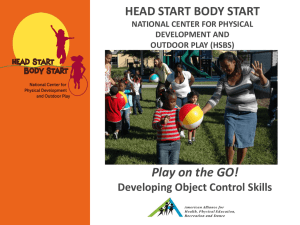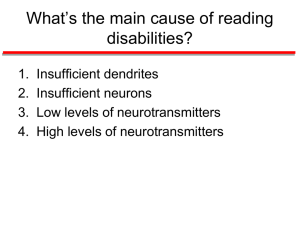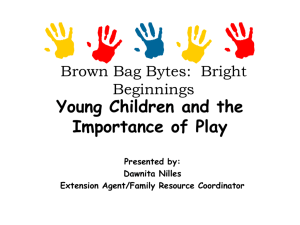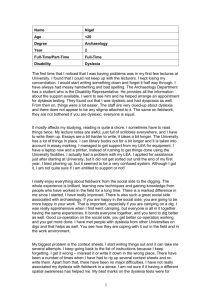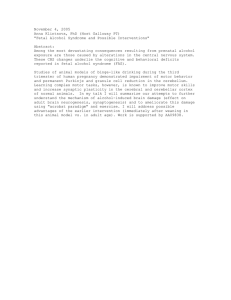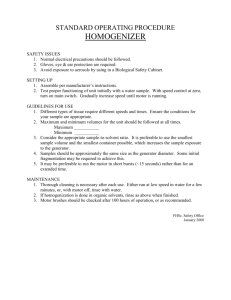Priya Pabreja December 9, 2005
advertisement
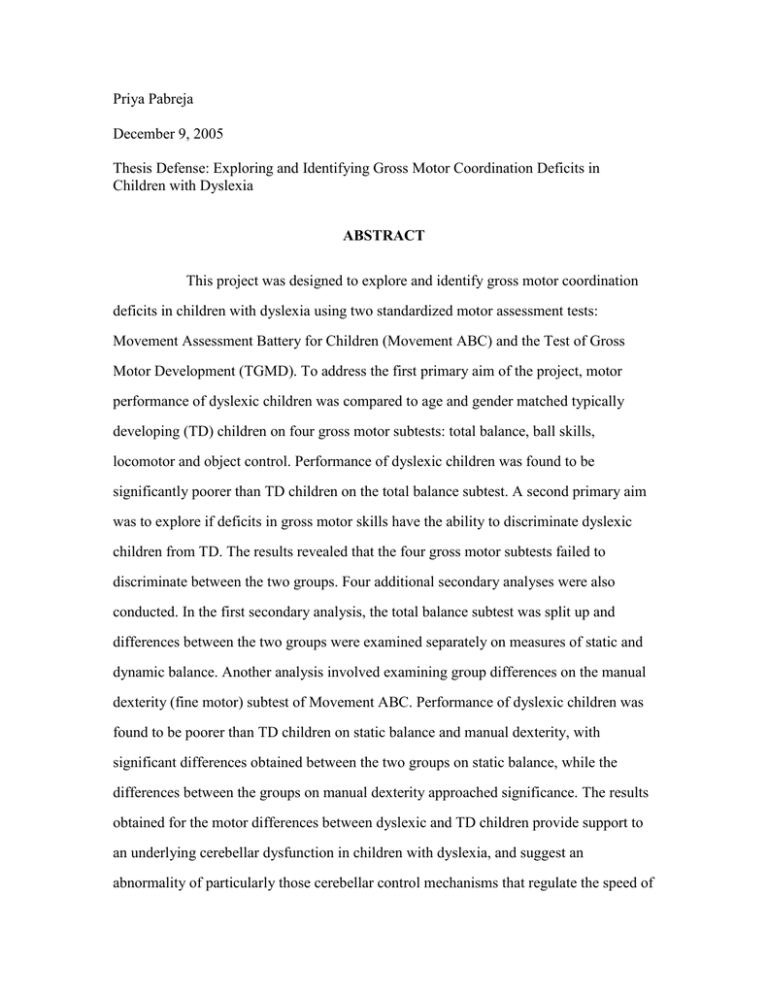
Priya Pabreja December 9, 2005 Thesis Defense: Exploring and Identifying Gross Motor Coordination Deficits in Children with Dyslexia ABSTRACT This project was designed to explore and identify gross motor coordination deficits in children with dyslexia using two standardized motor assessment tests: Movement Assessment Battery for Children (Movement ABC) and the Test of Gross Motor Development (TGMD). To address the first primary aim of the project, motor performance of dyslexic children was compared to age and gender matched typically developing (TD) children on four gross motor subtests: total balance, ball skills, locomotor and object control. Performance of dyslexic children was found to be significantly poorer than TD children on the total balance subtest. A second primary aim was to explore if deficits in gross motor skills have the ability to discriminate dyslexic children from TD. The results revealed that the four gross motor subtests failed to discriminate between the two groups. Four additional secondary analyses were also conducted. In the first secondary analysis, the total balance subtest was split up and differences between the two groups were examined separately on measures of static and dynamic balance. Another analysis involved examining group differences on the manual dexterity (fine motor) subtest of Movement ABC. Performance of dyslexic children was found to be poorer than TD children on static balance and manual dexterity, with significant differences obtained between the two groups on static balance, while the differences between the groups on manual dexterity approached significance. The results obtained for the motor differences between dyslexic and TD children provide support to an underlying cerebellar dysfunction in children with dyslexia, and suggest an abnormality of particularly those cerebellar control mechanisms that regulate the speed of movement/ influence time based motor performance. The third and fourth secondary analyses involved exploring the age and gender based differences in motor performance within the dyslexic group. The youngest dyslexic children performed better than their age norms, as compared to the old dyslexic children in the sample. Such results indicate that the structural/functional changes that lead to differing performance levels between dyslexic children and others of the same age may not be rectifiable. Lastly, the gender based comparisons within the dyslexic sample revealed dyslexic boys to be superior in power/force dependent tasks, while the performance of girls was found to be better than boys on postural control and fine motor tasks.
